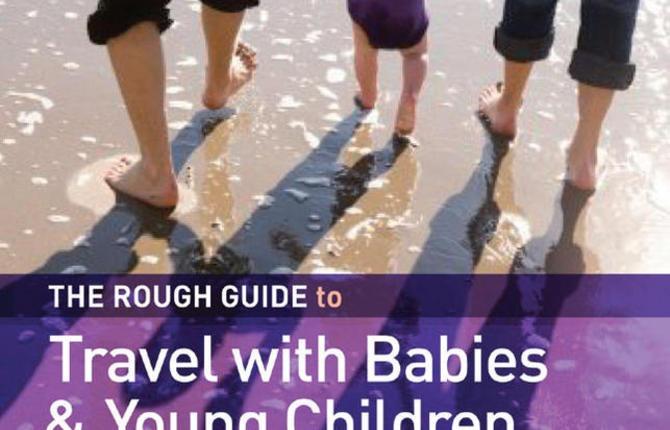
Staying with friends
The notion of visiting friends and family is attractive – particularly when you have young children. After all, everyone wants to reconnect, people want to get to know the children and be part of their lives, and there are many advantages to having a base and hands-on help. And yet, it’s not always smooth sailing. Why? Well, for starters, rhythms tend to be out of sync. If you’re breastfeeding and up half the night, for instance, you won’t be able to handle late evenings. It’s also rare for all visitors to feel equally relaxed – the chances are that one parent will know the hosts better than the rest. And, of course, children are honest – i.e. not the best of diplomats! While none of this should put you off, it’s worth thinking things through. Here are some tips towards making it work.
Swap expectations before you arrive. If you’re banking on getting help, or doing the odd thing on your own (usually a good idea for everyone’s sakes), it’s best to talk it all through. Be specific about your needs and routine. For instance, if you don’t tell your hosts what your children like to eat and when, they may get hurt if the kids balk at the results, or eat very little because they got hungry and couldn’t wait. Similarly, ask about your hosts’ routines and what they’d like to do. Find out when they are free, and when they might prefer some time out. Working hosts will appreciate some time to decompress when they first clock off – your cue to plan outings or to take the kids for a stroll.
Try telling your children some stories about your friends and your past together; if they understand why your friends are important to you, they’re more likely to be prepared to share you with them. Likewise, tell your hosts about your children – their pet loves and hates, and the things that are going on in their little worlds. Smart hosts will use every trick to break the ice. And if your children have special needs – autism, allergies or anything else – think about sending on the very best of your literature ahead; the more everyone knows the better, and you can always take it all back with you when you return. But even if you’ve been before, give your hosts an update. Grandparents, in particular, tend to go to great lengths to line up toys and activities that the children enjoyed on the last trip, only to find that their tastes have moved on since.
Once you arrive, get your hosts’ advice on how best to child-proof the place and organize your stuff. And while it’s never a sure bet, it does help to lay down some ground rules for the children: mark out no-go areas, tell them where they can put their things and play, and what they can’t touch without asking, such as the TV or computer.
If you have a choice, opt for a bedroom out of earshot. Reducing the decibels pays when you want to put the children to bed, and protects everyone else from the kids’ rousing antics – particularly first thing in the morning. On that note, if you use a baby-monitor, take care to switch it off whenever you’re in your room – I’ve heard many embarrassing accounts of private conversations being broadcasted.
Otherwise, organize some special outings with your friends, and make time for those heart-to-heart talks. If your children might take to a baby-sitter, give it a go and book one in. Even just a few hours’ footloose time without the children doing their usual interrupting can be a major treat.
And when it’s all over, however you thank your friends, think of getting the kids to chip in – say, with a drawing, or a story of your time together. These are often treasured and resurface years later as fun reminders of your time together. Here’s a extract of a note from a child to her aunt that made me smile: “ Thanks for… …Sorry about seeing you naked…”.
• Fawzia Rasheed de Francisco, is the author of The Rough Guide to Travel with Babies & Young Children.







